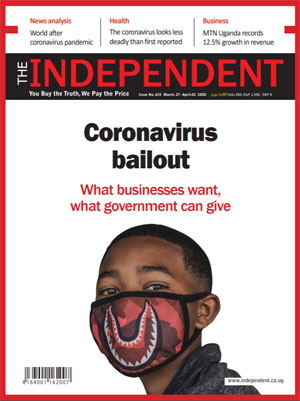Mind the gap
Africa is often presented in international media and policy as being held back by absences that need filling. But rarely is much attention paid to different experiences of this “need” or who benefits from filling such gaps. The idea of a yawning African “infrastructure gap” is the ultimate example of this, with the shortfall in infrastructure often estimated in hundreds of billions or even trillions of dollars.
It is true that there are major infrastructure challenges in many parts of Africa. But a careful look at the motivations behind the increased emphasis on this “gap” by a range of financial bodies such as pension funds, insurance companies and other major global investors is needed.
Since the financial crisis of 2007-09, such bodies have been looking for new kinds of asset to invest in. This has led to Africa’s infrastructure gap being increasingly framed as an investment opportunity. While it is often Chinesefinanced infrastructure like the road described above that is currently most visible, a further wave of infrastructure financed by private international capital from the West is on the horizon.
From South Africa to the Democratic Republic of Congo, infrastructure financed through public-privatepartnerhips and other forms of “blended finance” are being touted as the answer to Africa’s challenges. In the words of the South African government, such projects “must be large” and must provide a “sufficiently attractive risk profile” for investors.
Yet the popular idea that boosting the global financing of African infrastructure represents a “win-win” for investors and African populations is problematic. There is evidence that the infrastructure that global financiers want to fund, such as toll roads, is not the kind that is most desperately needed by the majority of the population. Much more important are the relatively unglamorous critical infrastructures required to provide safe water, sanitation, drainage and transport accessible to all.
Stoking conflict?
Meanwhile, as the Kampala case shows, big infrastructure investments often push up the value of land as speculators and high-end developers come in. This frequently displaces preexisting populations.
The rising cost of land and property in urban Africa, especially in rapidly transforming areas on the peripheries of large cities, is also associated with increased land conflicts. In West Africa particularly, it is common for groups of men – known as “landguards” in Ghana or “Omo-Onile” (children of the soil) in Lagos – to base their livelihoods around violently extorting resources from ordinary people attempting to build on urban land, citing ancestral claims to the land as justification.
The boost to land prices provided by infrastructure investments is likely to exacerbate these practices, if not carefully managed. As one Nigerian landowner once noted to myself and a colleague: “Land is the crude oil of Lagos.” Valuable land echoes the idea of a “resource curse” through which abundance in a resource, such as oil, can generate violent conflict. And as wealthy urban property-owners cash in on increased land values, they also form an important political lobby that can block progressive reforms such as increased property taxation. Ironically, this starves city governments of the resources to provide the infrastructures that really matter for the poor.
Instead of presenting African cities as places characterised by absences, it is crucial to understand the interests and everyday practices that exist in these supposed “gaps”. This is not only about considering who will be displaced by mega-infrastructures: it means paying attention to whether they might generate new opportunities for some by preying on or excluding others.
Current “solutions” financed by international investors seeking high rates of return are not only offering limited prospects for the poor. They could even generate new forms of political instability by amplifying inequality and displacement, and fomenting land-based grievances
(This week’s THE INDEPENDENT #CoronaVirus Special Edition is online-only and available to all our readers. Read the other articles in the magazine here –click) 
*******
info@independent.co.ug
 The Independent Uganda: You get the Truth we Pay the Price
The Independent Uganda: You get the Truth we Pay the Price


